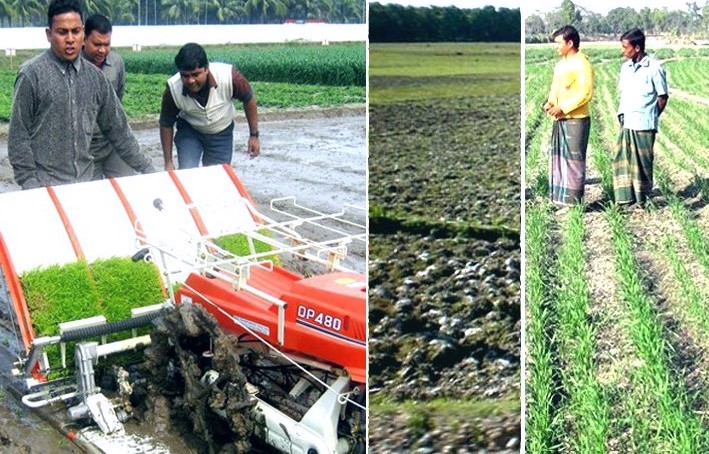News Flash

By Md Mamun Islam
RANGPUR, Sept 5, 2025 (BSS) - Agricultural experts have underscored the need for innovation, mechanization and wider cultivation of stress-tolerant and disease-resistant crops to sustain food security in the face of climate change.
They observed that changing climatic conditions have already disrupted seasonal patterns of rainfall, planting and harvesting, leaving no alternative but to adapt through continuous research and the innovation of stress-tolerant crop varieties.
Former Chief Scientific Officer of Bangladesh Rice Research Institute (BRRI) and Independence Award-2018 (food security) winner Dr MA Mazid put maximum emphasis on innovation, popularisation and cultivation of stress-tolerant crops.
The adverse effects of climate change have already altered the timing of the emergence of different seasons, crop cultivation and harvesting periods, leaving no alternative to developing stress-tolerant crop varieties to increase food production.
With population growth and arable land decreasing, the changing climate is continuously affecting agriculture, irrigation, ecosystems, biodiversity, environment and groundwater levels in the country, as in other parts of the world, affecting food production.
"Overall climate change has significantly altered seasonal rainfall, floods, dry seasons, sowing or planting periods, and harvest times in the country. So, it is crucial to innovate and cultivate more stress-tolerant crops," Dr Mazid said.
Md Mamunur Rashid, a PhD Fellow in the Department of Agricultural Extension at Dinajpur Haji Mohammad Danesh University of Science and Technology, said the changing climate has affected irrigation, agriculture, ecology and environment.
"As a result, the development and cultivation of more stress-tolerant and disease-resistant crops has become crucial to increase agricultural production amid floods, droughts, cold and hot periods, and declining groundwater levels," he said.
Md Mamunur Rashid, also an environmental expert, highly appreciated the steps taken by the Bangladesh government to adapt to climate change issues aiming at increasing food production for ensuring food security and managing natural disasters.
The country's northern region has started experiencing abnormal change in the climatic patterns causing concern to irrigation, agriculture, ecology, biodiversity and environment.
Narrating the chronological background that triggered climate change and its adverse impacts on agriculture, environment and other sectors, Mamunur Rashid said the adverse impacts of climate change might be even worse than those experienced so far.
"So, efforts must be continued to evolve more stress-tolerant and disease-tolerant crop varieties and popularising those among farmers for expanded cultivation to keep food production increasing under adverse situations," Mamunur Rashid said.
Acting Additional Director of the Department of Agricultural Extension for Rangpur region Md Sirajul Islam said that the declining groundwater level has further worsened the climate situation, which is gradually affecting agriculture in the northern region.
"We must make maximum efforts to innovate new technologies and mechanization of agriculture so that the cultivation of stress-tolerant crops increases in all seasons to keep agricultural production increasing for ensuring food security," he said.
He praised the success already achieved by farmers in cultivating flood-tolerant, drought-tolerant and salinity-tolerant, stress-tolerant and disease-resistant rice, wheat, maize and other crops to increase food production for feeding the growing population.